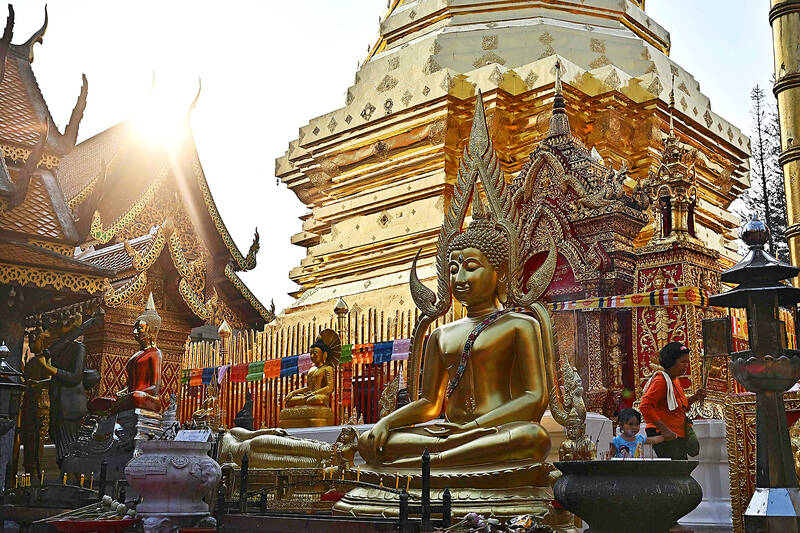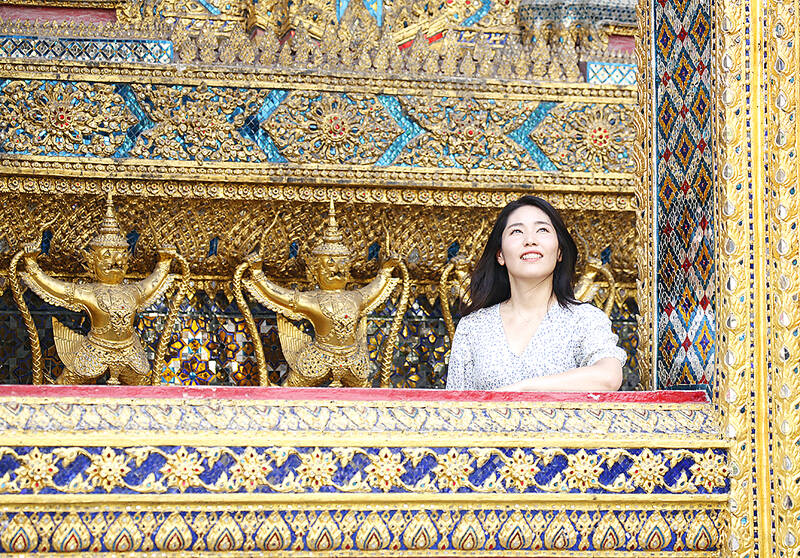Approaching her mid-30s, Xiong Yidan reckons that most of her friends are on to their second or even third babies. But Xiong has more than a dozen. There is Lucky, the street dog from Bangkok who jumped into a taxi with her and never left. There is Sophie and Ben, sibling geese, who honk from morning to night. Boop and Pan, both goats, are romantically involved. Dumpling the hedgehog enjoys a belly rub from time to time. The list goes on.
Xiong nurtures her brood from her 8,000 square meter farm in Chiang Dao, a mountainous district in northern Thailand’s Chiang Mai province. Xiong has chronicled her journey from Beijing cryptocurrency marketing executive to farm girl in Thailand on social media; she’s particularly popular on Xiaohongshu (小紅書), a female-focused app similar to Instagram, where she has more than 38,000 followers. Her account shows people that switching to a slower pace of life “is not just some illusion or idealistic thing, but is very actionable,” she says.
THE ‘MULTIVERSE’ SELF

Photo: AFP
Moving to Thailand has allowed her to have a “multiverse version” of herself, where she can be a farmer, an influencer, a businesswoman and a single, child-free woman, away from the pressures of Chinese society.
Xiong is part of a burgeoning trend of Chinese people — particularly millennials — who feel that the country that was supposed to be the powerhouse of the 21st century has little to offer them personally in social, intellectual and spiritual terms. In recent years, an economic downturn and lingering trauma from the isolation of China’s draconian zero-COVID regime has pushed people who would otherwise be seen as the country’s success stories to emigrate.
“It felt like the end of the world,” says Linda Xu, of the Shanghai lockdown. Until March 2022, she was the general manager of a successful skateboarding start-up in Shanghai, but now she spends much of her time in Chiang Mai, “figuring out what the next chapter might be.”

Photo: EPA
ART, BOOKS, FREE SPEECH
Chiang Mai, a tourist hotspot popular with backpackers and nature-lovers, has become an unlikely second home for thousands of new Chinese migrants. More than 110,000 Chinese nationals applied for long-term visas in Thailand between January and September in 2022, nearly the total number for 2019. Nearly half of the members of Thailand’s “elite card” visa scheme, which offers long term residency rights for a fee starting at US$25,000 are Chinese. Thousands of them are settling in Chiang Mai, attracted by the city’s laid back atmosphere and permissive social environment — with or without the legalized marijuana.
Cannabis has never been freely available in the People’s Republic of China. But it was not so long ago that China’s big cities were replete with independent bookstores, cinemas and social spaces where like-minded people could meet openly to discuss topics such as feminism, LGBT issues, philosophy and anything else that might interest them. While certain topics were always forbidden, the country’s intelligentsia navigated these red lines with relative ease. But after more than a decade of increasingly iron-fisted rule by Xi Jinping (習近平), few, if any, of these spaces remain.
Nowhere Bookstore opened in Chiang Mai in November last, after the launch of its sister shop in Taipei the previous year was founded by Zhang Jieping (張潔平), a mainland-born journalist who is now based at Harvard University. The small space stocks material on topics that would be impossible to discuss openly in China, such as the 1989 Tiananmen Square massacre. “There are many books that you can’t see or buy in mainland China,” says a young designer from Guangzhou who seized the opportunity to visit the shop while on holiday in Thailand, saying that she otherwise has to rely on the “fragmented information” of the Chinese internet.
As well as selling books, Nowhere also hosts Chinese-language events on wide-ranging topics for the growing Chinese community in Chiang Mai. At a recent event, the 62-year-old writer Zheng Shiping (鄭世平) spoke about spending his retirement years in exile. Zheng started his career as a policeman in the 1980s but quit the force after Tiananmen Square massacre, and went on to become a renowned poet and writer, working under the pen name Ye Fu (野夫). He arrived in Thailand at the end of 2019, having heard from doctors in Wuhan, the capital of his home province of Hubei, about a virus that was spreading dangerously fast in the city.
“Thailand is certainly not as safe as the US, Europe or Japan,” he says, acutely aware of the fate of Gui Minhai (桂民海), a Swedish bookseller who was kidnapped from Thailand in 2015, reappearing months later in Chinese custody, an incident which spooked dissidents in Thailand. “But it’s still basically a country with free speech. It basically protects human rights.”
Zheng is part of an older cabal of expats who have established a retirement village-meets-arts community in a suburb of Chiang Mai. Unlike the millennial transplants, this older generation was forged in China’s more liberal era of the 1980s and has a more political perspective about the country’s trajectory. “We were hopeful, a generation of people who made great sacrifices and efforts, but ultimately failed,” says Zheng. “Young Chinese today are more desperate than we were then. In the next few years, they will be unemployed, their lives will be in crisis, and their rights as human beings will diminish little by little.”
Many of the Chinese in Thailand say that they are attracted to the idea of a less consumerist, more peaceful lifestyle, informed by Thailand’s Buddhist principles. With the highest rate of inequality in the region, Thailand’s appeal may be informed more by the fact that the low cost of living allows relatively wealthy Chinese to have a slower pace of life in Chiang Mai than they could afford in Chongqing. Nonetheless, the space Thailand offers for people looking for a more spiritual life is another draw for Chinese who feel increasingly suffocated at home.
BAMBOO BUDDHA SCHOOL
Founded in 2010, Panyaden International School is a school made nearly entirely out of bamboo that offers an education based on Buddhist principles, known as bhavana. Staff participate in an annual silent meditation retreat and the students harvest their own rice from a nearby paddy field, to learn about the effort that goes into feeding the planet. More than 10 percent of the students are from China, and although fees reach up to US$15,000 a year, that is still only around a third of the cost of top international schools in Beijing. One of the school’s “12 wise habits,” which teachers emphasise to children, is the value of “knowing the right amount,” a reference to the idea of not consuming too much, or too little. There is also an in-house spiritual adviser. It is an approach to education that is unimaginable in mainstream, hyper-competitive Chinese schools.
Xiong says her parents feel that the money they spent on her education has been “flushed down the toilet.” But living in Thailand is “the only way I have the freedom to do whatever I want,” she reflects. “Without actually actively choosing it, I am having this kind of feminist lifestyle.”